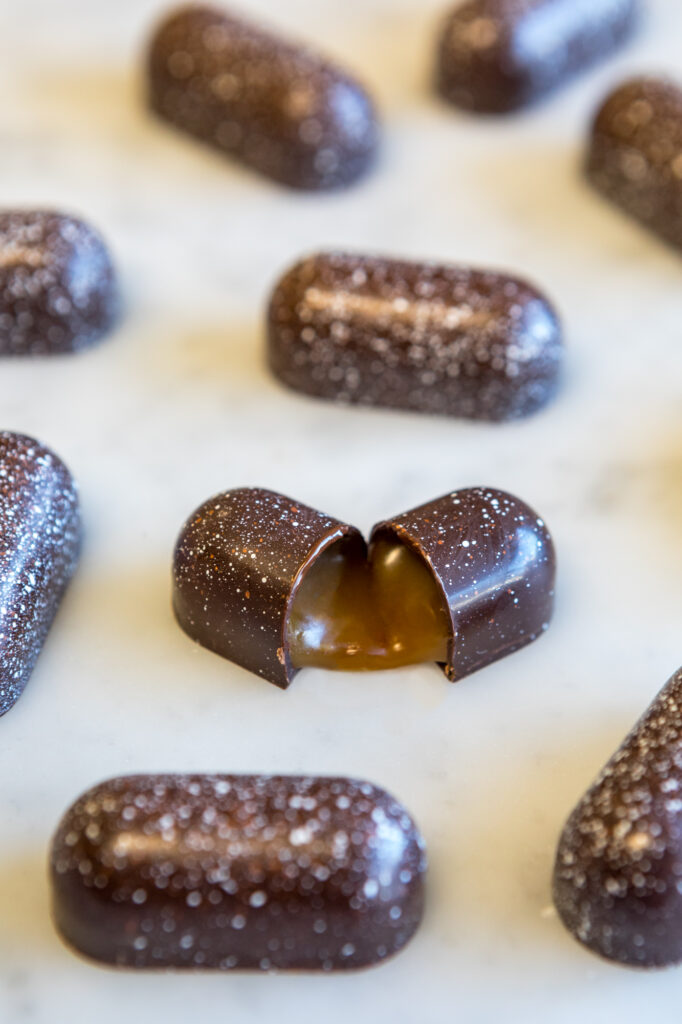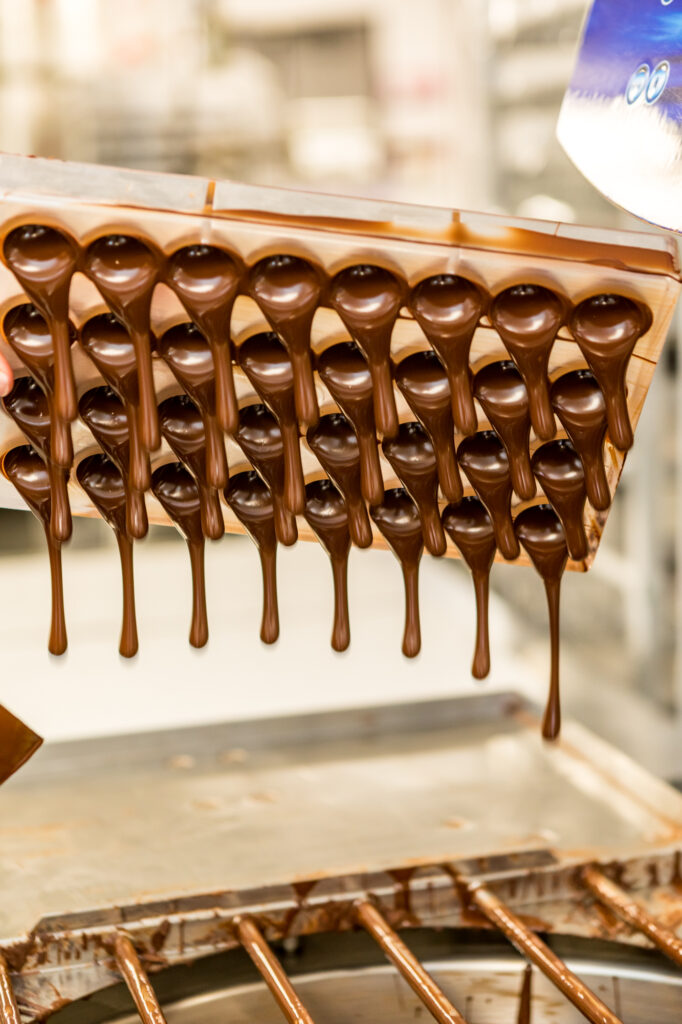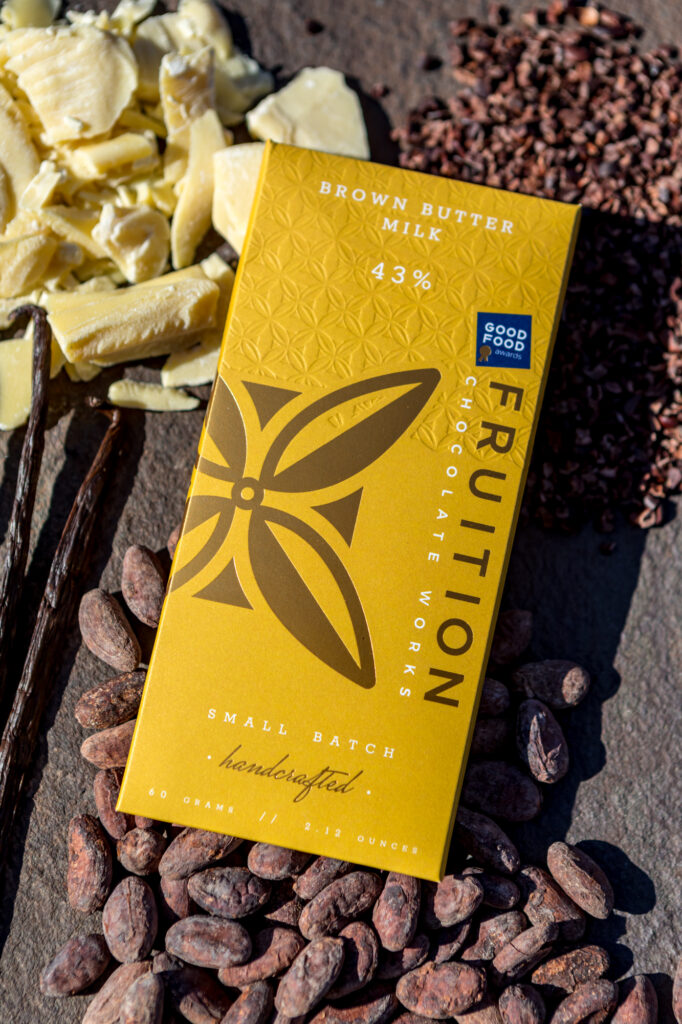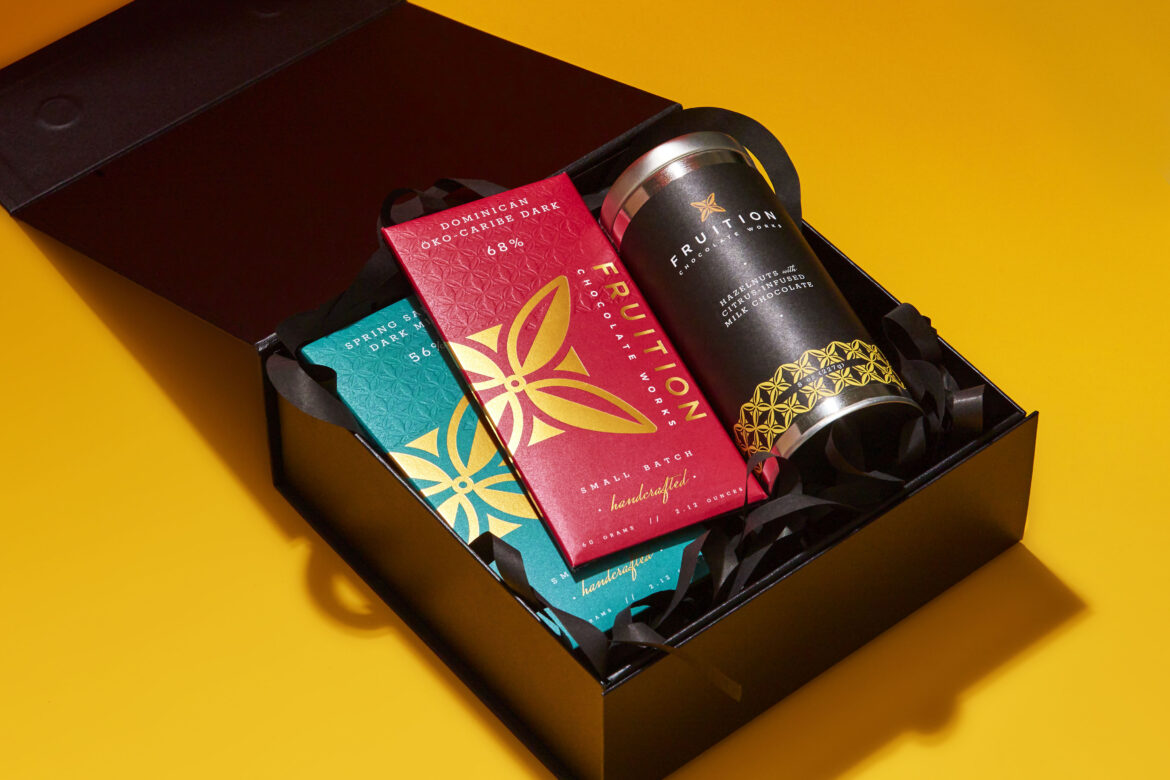Q&A with Dahlia Graham of Fruition Chocolate Works
Dahlia Graham—CEO of Fruition Chocolate Works—wants you to know how real chocolate is made. When I sat down with Graham last month to discuss Fruition’s story, I did not expect to leave feeling moved by her devotion to the craft. Fruition Chocolate offers curiously delicious (and ethically sourced) products—made possible by Dahlia’s knack for business oversight and her husband Bryan’s chocolate-making skills. Does it really get better than that? Though you can’t taste the chocolate through the screen, Dahlia Graham tells us why you should shop Fruition online or visit the store in Shokan, New York. Trust me, the trip is worth it.
Q: What’s the story behind Fruition Chocolate?
A: In a nutshell—when we started in 2011 there were only about a dozen craft chocolate makers in the United States, including some that were bigger than us. And now there are upwards of probably 200 or 300 (we’re still kind of a drop in the bucket with respect to chocolate and candy as a global industry). We try to convey that we’re not only making our chocolate from the cocoa beans, including steps like sourcing, cacao roasting, cracking, winnowing, refining, conching, tempering, and moulding—a craft in and of itself—but we’re making our own chocolate and then we’re using that chocolate to make confections. We’re able to control the flavor profile of a product, highlighting the nuance of the particular cacao that we’re using. The other thing, our cacao is ethically sourced. We’re doing transparent trade. We’ve also won a lot of awards—international blind tastings. So it makes us feel good that we’ve sent out chocolate to a panel of judges, and shown up as one of the top in the world even when they don’t know it’s Fruition. We pride ourselves on transparent sourcing, but if you don’t put out a product that tastes good, nobody’s going to come back and buy it again. We know what we do has to be great, and we’re proud of everything we put our name on.

Q: How do you source your cacao?
A: We have partners like Uncommon Cacao: one of the leaders in transparent trade and sustainability. They visit their sources, provide training to local communities, take surveys, keep tabs on how many women are involved, etc., and make sure the farm gate pricing is equitable—so we pay well above the market price for the cacao that we’re getting—above what’s considered fair trade. Fair Trade generally only means a couple 100 dollars above the market commodity price per ton, which rarely reaches the farmers. It’s about paying fair wages to people on the ground, but also, paying for better quality. The mass-market chocolate industry is just looking to get as many cocoa beans for as cheap as they can. We’re looking for quality and equity.
Q: How does your current chocolate-making process compare to production when the business first opened?
A: Bryan used a hairdryer when he was learning to make chocolate. He roasted cocoa beans in a toaster oven at home, cracked them open with a rolling pin, and then went outside with a bowl and a hairdryer to blow the shell onto the porch—it was a very rudimentary winnowing job. When we opened our business, he built a winnower based on a model that he had seen online. But then he used to sit there for eight hours a day—winnowing away—and it got to an inefficient point in the business. So, we upgraded to a more efficient machine, and then the next level machine—continuing to reinvest. We ultimately grew from some stone melangeurs into a machine called a universal refiner conche and now we have several of those. So I’d say we’ve evolved, we’ve grown our production capacity, but we’ve also been able to scale up and improve quality at the same time—which is exciting!

Q: Tell us about your tasting room experience.
A: The tasting experience is free! Anyone can walk around trying the different chocolate samples—there’s also a viewing window that looks into the kitchen so people can see what’s going on in there as they taste. We have a full espresso bar offering mochas, hot chocolate, lattes—a special bourbon caramel latte (we use local Hudson Whiskey Bourbon from Tuthilltown Spirits to make the bourbon caramel). We serve Del’s ice cream as well, which we customize with our chocolate sauce to make black and white shakes, sundaes,, and ice cream sandwiches with flourless chocolate cookies.
Q: Do you have an all-time favorite Fruition chocolate?
A: There have been a lot of really good ones. There’s a bar right now—a Tanzania latte dark milk chocolate from a place called Kokoa Kamili, Tanzania. We bought a special lot of cacao made exclusively by women and combined it with a local coffee roaster’s Tanzanian peaberry coffee (@heavyfeatherroastco) to make a dark milk chocolate bar. I love that one in particular because it pulls together personal connections, but it’s also such a nice creamy chocolate bar that tastes like a cafe latte.
Q: Do you ever get tired of chocolate?
A: I eat a lot of chocolate—sometimes I need a break (I definitely average half a bar a day), but, the fun part of my job is that I will always have to try things.

All images courtesy of Fruition Chocolate



